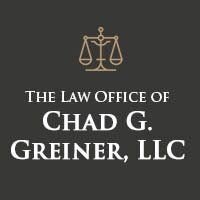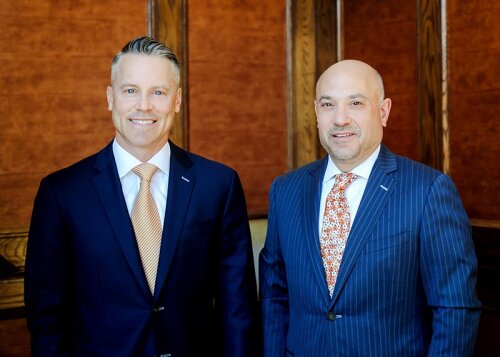Best Accidents & Injuries Lawyers in Georgia
Share your needs with us, get contacted by law firms.
Free. Takes 2 min.
Or refine your search by selecting a city:
List of the best lawyers in Georgia, United States
United States Accidents & Injuries Legal Articles
Browse our 1 legal article about Accidents & Injuries in United States written by expert lawyers.
- What to Do After a Serious Car Accident in the US: A Legal Step-by-Step Guide
- Call 911, get medical help, and do not admit fault. Photograph the scene, vehicles, and your injuries, and get witness names and the officer's report number. Report the crash to your insurer quickly. In no-fault states, PIP deadlines are short (e.g., Florida requires initial treatment within 14 days; New York... Read more →
About Accidents & Injuries Law in Georgia, United States
Accidents and injuries law, commonly known as personal injury law, is a legal area that allows individuals who have been harmed by the wrongful actions or negligence of others to seek compensation. In Georgia, these cases often involve car accidents, slips and falls, medical malpractice, workplace incidents, or injuries caused by defective products. The goal of Georgia's personal injury law is to make an injured person "whole" after suffering physical, emotional, or financial harm due to someone else's actions and to hold the responsible party legally accountable.
Why You May Need a Lawyer
Navigating accident and injury claims can be complicated, especially when you are recovering from harm or facing medical expenses. Here are some common situations where hiring a lawyer can be crucial in Georgia:
- Your injuries are severe or require long-term care
- The accident involved multiple parties or unclear fault
- An insurance company denies your claim or offers an insufficient settlement
- You are facing significant lost wages due to missed work
- Liability is being disputed or you may share some responsibility
- You are unsure about your rights under Georgia law or what compensation you could receive
A knowledgeable personal injury attorney can help you understand the value of your claim, gather evidence, negotiate with insurance adjusters, and represent you in court if necessary to ensure your rights are protected.
Local Laws Overview
Georgia has specific laws and regulations that affect accidents and injuries claims:
- Modified Comparative Fault: Georgia follows a modified comparative negligence rule. If you are found partially at fault for the accident, your compensation may be reduced by your percentage of fault. However, you cannot recover damages if you are 50 percent or more at fault.
- Statute of Limitations: Generally, you have two years from the date of the accident to file a personal injury lawsuit in Georgia. Failing to meet this deadline usually means your right to compensation is lost.
- Damage Caps: Georgia does not cap compensatory damages in personal injury cases, but punitive damages (meant to punish the wrongdoer) are generally capped at $250,000 with some exceptions.
- Reporting Requirements: For car accidents, Georgia law requires reporting to law enforcement if there are injuries, fatalities, or property damage over $500.
- Insurance Laws: Drivers in Georgia must carry liability insurance with minimum coverage amounts for bodily injury and property damage.
Understanding these laws is important when building a strong case and evaluating your options.
Frequently Asked Questions
What should I do immediately after an accident in Georgia?
After an accident, seek medical help for injuries, contact law enforcement, document the scene with photos, exchange information with the other party, and avoid admitting fault. Notify your insurance company and consult with a personal injury attorney as soon as possible.
How is fault determined in a Georgia car accident?
Fault in Georgia is based on negligence. Investigations will consider police reports, witness statements, photographs, and other evidence to determine who was responsible. Georgia's comparative fault laws may reduce recoveries if you share some blame.
What types of damages can I recover in an accident claim?
You may be entitled to compensation for medical expenses, lost wages, pain and suffering, property damage, and, in some cases, punitive damages.
How long do I have to file a personal injury lawsuit in Georgia?
In most cases, you have two years from the date of the injury or accident to file a lawsuit. There are some exceptions for minors or claims involving government entities.
Can I still recover compensation if I was partially at fault?
Yes, under modified comparative negligence, you can recover compensation if you were less than 50 percent at fault. Your compensation will be reduced by your percentage of responsibility.
What if the person who injured me does not have insurance?
You may be able to make a claim under your own uninsured or underinsured motorist coverage, or consider legal action against the responsible individual directly.
Do I have to go to court to resolve my claim?
Many accident and injury cases are settled out of court through negotiations. However, your case may go to trial if a fair settlement cannot be reached.
How much does it cost to hire a personal injury lawyer in Georgia?
Most personal injury attorneys work on a contingency fee basis, which means they only get paid if you receive compensation. The typical fee is a percentage of your settlement or award.
What is the process for making an insurance claim?
After receiving medical care and reporting the accident, you file a claim with the at-fault party's insurance company. An adjuster will investigate and may offer a settlement. You or your attorney can negotiate, and if necessary, file a lawsuit.
Can I handle my accident claim without a lawyer?
It is possible, but not recommended for serious injuries or contested claims. Insurance companies have experienced adjusters, and having legal representation greatly increases your chance of a favorable outcome.
Additional Resources
There are several organizations and agencies in Georgia that can provide helpful information and support for accident and injury victims:
- Georgia Department of Insurance - For information about insurance requirements and complaints
- Georgia Governor's Office of Highway Safety - Statistics, safety programs, and resources related to auto accidents
- Consumer Protection Division of the Georgia Department of Law - Guidance for consumers
- State Bar of Georgia - Lawyer referral service and resources on legal rights
- Georgia Legal Services Program - Free or low-cost legal help for qualifying individuals
- Georgia Department of Public Health - Guidance on health and safety after an accident
Next Steps
If you have been injured in an accident in Georgia and believe you are entitled to compensation, consider the following steps:
- Seek medical attention immediately and keep detailed records of all treatment
- Collect and preserve evidence, including photos, witness information, and official reports
- Report the accident to your insurance company without delay
- Consult with a qualified Georgia personal injury attorney to evaluate your claim and ensure your legal rights are protected
- Be cautious when speaking with insurance adjusters or signing documents before obtaining legal advice
A professional attorney can guide you through every stage of the process, from initial claim to settlement negotiations or, if necessary, courtroom representation. Taking these important first steps will help preserve your right to fair compensation.
Lawzana helps you find the best lawyers and law firms in Georgia through a curated and pre-screened list of qualified legal professionals. Our platform offers rankings and detailed profiles of attorneys and law firms, allowing you to compare based on practice areas, including Accidents & Injuries, experience, and client feedback.
Each profile includes a description of the firm's areas of practice, client reviews, team members and partners, year of establishment, spoken languages, office locations, contact information, social media presence, and any published articles or resources. Most firms on our platform speak English and are experienced in both local and international legal matters.
Get a quote from top-rated law firms in Georgia, United States — quickly, securely, and without unnecessary hassle.
Disclaimer:
The information provided on this page is for general informational purposes only and does not constitute legal advice. While we strive to ensure the accuracy and relevance of the content, legal information may change over time, and interpretations of the law can vary. You should always consult with a qualified legal professional for advice specific to your situation.
We disclaim all liability for actions taken or not taken based on the content of this page. If you believe any information is incorrect or outdated, please contact us, and we will review and update it where appropriate.
Browse accidents & injuries law firms by service in Georgia, United States
Georgia, United States Attorneys in related practice areas.
Browse accidents & injuries law firms by city in Georgia
Refine your search by selecting a city.
















